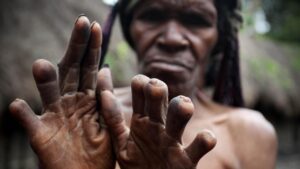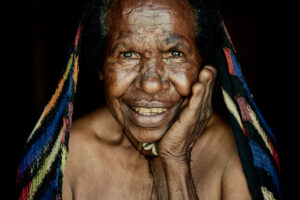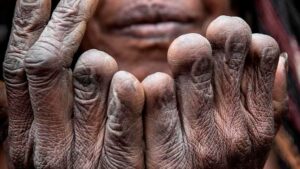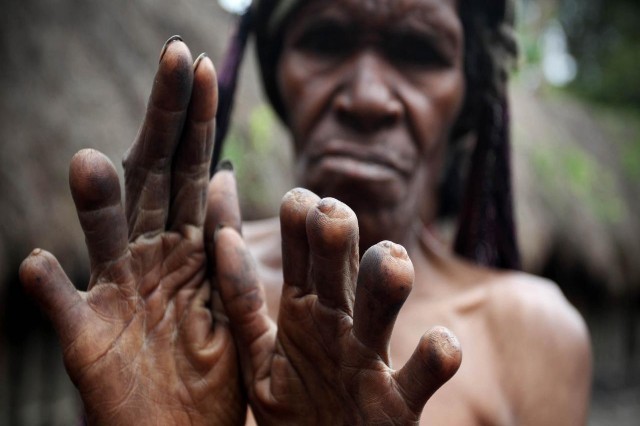Marriage customs vary greatly across different societies, and the phrase “for better or worse” holds different meanings depending on the culture. In certain regions such as Papua, New Guinea and Wamena in the Jayawijaya Regency of Indonesia, the concept of “till death do us part” and familial bonds involves the cutting off of fingers, a practice primarily carried out by women and rarely by men. The origins of this custom, known as “Ikipalin,” and the reason for women’s predominant involvement in it remain unknown.

In 1938, American explorer Richard Archbold claimed to have sighted this tribe of around 250,000 individuals during a flight over the remote highlands of Western New Guinea.
In the early 1970s, the Indonesian government attempted to modernize the Dani tribe by encouraging them to wear shorts through a program called “Operation Koteka,” also known as “Operation P*nis Sheath.” However, despite the initiative’s failure, the Dani continue to wear their eye-catching traditional attire.

Traditionally, the koteka was made from a dried-out gourd, a native fruit, and was believed to be a symbol of s*xual prowess. However, the Dani now primarily use it for concealment.
In 2016, photographer Han Lin visited Papua New Guinea and spent four days with the Dani tribe, capturing int*mate images of the men wearing kotekas as customary attire. It’s worth noting that while the Dani continue to wear traditional dress, they have also integrated modern clothing into their wardrobe.
The death of a loved one can elicit a range of emotions, with grief being a form of emotional suffering.

In the Dani tribe, the grief that women experience after the loss of a loved one is not limited to emotional pain but also includes physical suffering. This is evident in the practice of Ikipalin, where the fingers of women are amputated as a symbol of grief. The tribe considers fingers as a representation of unity and strength, and the loss of fingers is believed to diminish the family’s strength.
Ikipalin is a customary ritual that occurs during the mourning process and is usually performed by a close relative. The tribe believes that cutting off the fingers keeps the spirit of the deceased at peace and signifies the sorrow of bereavement. Shockingly, this practice is not limited to adults, as some mothers even bite their children’s fingers, believing that it would limit their future or increase their lifespan.

Despite the practice being banned by the Indonesian government years ago, older women of the Dani tribe still bear the physical scars of finger amputation. The practice is believed to still occur in secret. The process of amputation typically involves using a stone blade to sever the top of the finger, although some individuals may weaken the knuckles by chewing before constricting the finger with a rope.
Lack of oxygen to the area causes the nerves and muscles to die, resulting in the finger falling off. In ancient times, phalanx bones were forcefully broken using sharp stones. After amputation, the wound is cauterized to prevent bleeding, and the removed portion is either burned or buried in a significant location. Joint ligation is another method to stop blood flow to the area.
The finger cutting ritual is typically carried out by close relatives such as siblings or parents to express their grief. In addition to finger amputation, the Dani people also cover their faces with ashes and clay as a further sign of mourning.
Other extreme practices to express grief include cutting off ears or smearing themselves with river sludge for a week without bathing, signifying the return of the dead to nature.
